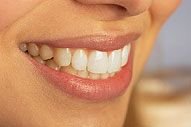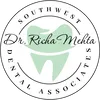Periodontal exams are vital in the maintenance of your oral health as they are used to assess the health of your gums and teeth. They can help your dentist diagnose gum diseases, gingivitis and periodontitis. These exams can also reveal receding gums, exposed roots, tooth grinding and other problems,
Read more
 Overview
Overview
People choose esthetic dental procedures/surgery for various reasons—to repair a defect such as a malformed bite or crooked teeth, treat an injury, or just improve their overall appearance. Whatever the reason, the ultimate goal is to restore a beautiful smile.
For these and many other reasons, esthetic dentistry has become a vital and important part of the dental profession.
Common esthetic dental procedures can be performed to correct misshaped, discolored, chipped or missing teeth. They also can be used to change the overall shape of teeth—from teeth that are too long or short, have gaps, or simply need to be reshaped.
Some of the more common procedures involve:
- Bonding - A procedure in which tooth-colored material is used to close gaps or change tooth color.
- Contouring and reshaping - A procedure that straightens crooked, chipped, cracked or overlapping teeth.
- Veneers - A procedure in which ultra-thin coatings are placed over the front teeth. Veneers can change the color or shape of your teeth. For example, veneers have been used to correct unevenly spaced, crooked, chipped, oddly shaped or discolored teeth.
- Whitening and bleaching - As the term implies, whitening and bleaching, a rapidly increasing procedure, are used to make teeth whiter.
Which techniques should be used to improve your smile? A dental exam will take many factors into consideration, including your overall oral health.
-
Periodontal Exams
-
Plaque
Plaque is a film of bacteria that forms on your teeth and gums after eating foods that produce acids. These foods may include carbohydrates (starches and sugars), such as candy and cookies, and starchy foods such as bread, crackers, and cereal. Tooth decay, commonly known as cavities, occurs when
Read more -
Prevention Tips for Children
Infants Infants should be seen by our office after the first six months of age, and at least by the child's first birthday. By this time, the baby's first teeth, or primary teeth, are beginning to erupt and it is a critical time to spot any problems before they become big concerns. Conditions like
Read more -
Root Canal Therapy
Root canals are tiny passageways that branch off from beneath the top of the tooth, coursing their way vertically downward, until they reach the tip of the root. All teeth have between one and four root canals. Many tooth problems involve infections that spread to the pulp, which is the inner chamber
Read more -
Scaling and Root Planing
Some cases of acute periodontal (gum) disease that do not respond to more conventional treatment and self-care such as flossing may require a special kind of cleaning called scaling and root planing. The procedure begins with administration of a local anesthetic to reduce any discomfort. Then, a small
Read more -
Sealants
Sealants are liquid coatings that harden on the chewing surfaces of teeth and are showing a great deal of effectiveness in preventing cavities—even on teeth where decay has begun. The pits and grooves of your teeth are prime areas for opportunistic decay. Even regular brushing sometimes misses these
Read more -
Sealants
The pits and grooves of your teeth are prime areas for opportunistic decay. Even regular brushing sometimes misses some of these intricate structures on the chewing surfaces of your teeth. Enter sealants, which are thin coatings applied to the chewing surfaces designed to prevent the intrusion of
Read more -
Seniors and Oral Health
More and more people are avoiding the need for dentures as they grow older, going against the notion that false teeth are a normal part of growing older. In fact, there's usually no reason for you NOT to keep your teeth your entire life, providing you maintain a healthy balanced diet and practice
Read more -
Sensitive Teeth
If you wince with pain after sipping a hot cup of coffee or chewing a piece of ice, chances are that you suffer from "dentin hypersensitivity," or more commonly, sensitive teeth. Hot and cold temperature changes cause your teeth to expand and contract. Over time, your teeth can develop microscopic
Read more -
Teeth Grinding (Bruxism)
Teeth grinding, also called bruxism, is often viewed as a harmless, though annoying, habit. Some people develop bruxism from an inability to deal with stress or anxiety. However, teeth grinding can literally transform your bite relationship and worse, severely damage your teeth and jaws over long
Read more -
The Preventive Program
Both natural teeth and teeth with restorations survive best in an oral environment that is clean and where the intake of harmful foods is controlled. Our program is designed to help prevent new cavities, preserve teeth that have been restored and manage periodontal disease. At the initial visit oral
Read more -
Tobacco
Dentistry health care that works: tobacco The American Dental Association has long been a leader in the battle against tobacco-related disease, working to educate the public about the dangers inherent in tobacco use and encouraging dentists to help their patients break the cycle of addiction. The Association
Read more -
Toothaches
Simple toothaches can often be relieved by rinsing the mouth to clear it of debris and other matter. Sometimes, a toothache can be caused or aggravated by a piece of debris lodged between the tooth and another tooth. Avoid placing an aspirin between your tooth and gum to relieve pain, because the dissolving
Read more -
Types of Floss
Dental floss comes in a variety of colors, materials and even flavors. Waxed varieties slide through the teeth, allowing people with extremely tight spaces to floss more easily. Popular flavors of floss include wintergreen and cinnamon. Waxed floss does tend to fray more than unwaxed floss. A type
Read more -
Water Picks
There is never a suitable substitute for daily brushing and flossing. While some products, including water irrigation devices (or “water picks”), may be useful for specific applications, they may not be as effective as traditional flossing in the removal of plaque. Water picks use powerful
Read more -
What is Tooth Decay?
Plaque is an insidious substance—a colorless, sticky film—that blankets your teeth and creates an environment in which bacteria erode tooth enamel, cause gum irritation, infection in inner structures such as pulp and the roots, and in extreme cases, tooth loss. Some of the biggest culprits causing
Read more

